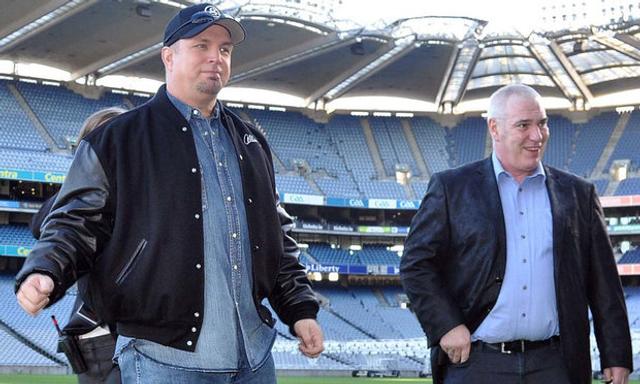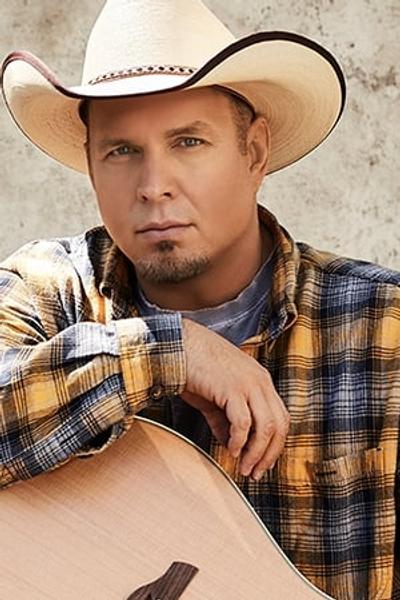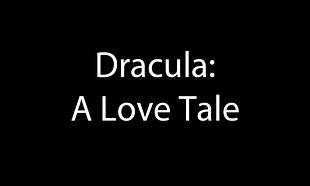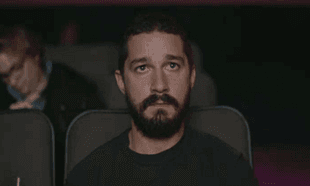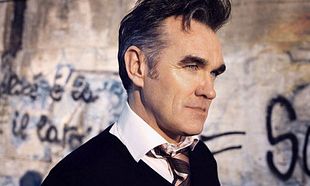A grim sense of inevitability hovers over this afternoon's official announcement that all five of the Garth Brooks concerts in Croke Park later this month have officially been axed. Ever since Dublin City Council first announced last Thursday that they would award a license to just three of the five scheduled dates due to protests from the local community, the concerts seemed doomed as the promoters grasped at straws in an attempt to steady what was clearly a sinking ship.
No parties - Aiken, Croke Park, the local community or Brooks himself - were willing to cede an inch of territory and, when Brooks issued his "it's five or none" ultimatum, it seemed an impossibility that the concerts could proceed as planned. Dublin City Council's decision to award three licences was final and, due to the system in place, could not be appealed. Given Brooks' strong words subsequently, along with the benefit of hindsight, it seemed that the writing was on the wall for the concerts and the 400,000 punters who handed over cash for tickets.
Who is to blame?
As is usually the situation in matters like this, fingers will be pointed in numerous directions. The entire situations stems from a group of local residents from the Croke Park community issuing a formal objection to the licensing of the concerts. Boo-hoo, you say? Not so fast. This isn't NIMBYism from a group of grouchy residents who are taking pride in ruining everyone else's fun. One must consider that these residents were given written notification from Croke Park that no more than three concerts were to take place per year in the stadium. The Brooks gigs, as well as three dates from One Direction earlier this year, means that the authorities who govern Ireland's largest outdoor stadium disregarded this agreement quite significantly.
Aiken Promotions have also come under fire for their handling of the situation. Their license application for these concerts has been called into question but the truth is that any fault in that regard lies in the nuts and bolts of the application process, rather than in those who submitted the papers. Peter Aiken, as we're led to believe, is currently en route (or has just arrived) to the United States in an attempt to mediate the situation but will have turned on his Blackberry to the latest (and final) twist in the tale in a story which has dominated the Irish headlines for nearly a week.
Is Brooks the hero in this piece?
This leaves us with Brooks himself. Given that he is firmly cast as the protagonist in this tragedy, it will be difficult to find a high percentage of people who will lay any blame in his direction but the fact is that his recent 'all or none' ultimatum was the single biggest inciting comment in this entire farce. Brooks initially agreed to three concerts in Croke Park, which were set to take place across the weekend of the 25th to 27th of July and it was only when these concerts exceeded the ticket sales expectations that two further dates were added.
Regardless of the complaints of local residents, or any agreements in place between the stadium and the people who live in its shadow, the first three gigs - the only concerts that were initially planned - were given the go-ahead by Dublin City Council, who chose to nix the extra dates to reflect the objections of residents. That's 160,000 disappointed punters but it leaves 240,000 ticket-buying members of the public who, at least on the surface, needn't have gotten caught up in this mess.
In one of the many press releases that were distributed throughout this debacle, one in particular from Aiken Promotions was at pains to dismiss Brooks' 'all or none' message as being an ultimatum even though the words Brooks chose to describe his thoughts on the issue seemed like a textbook definition of the word. The country music legend could have quelled these flames somewhat had he agreed to honour the initial three dates he agreed to but pulled out a litany of less-than-impressive excuses to underline why that was no longer an option.
Peter Aiken, speaking on Brooks' behalf, intimated that Garth will only get into the swing of things by the final performance. But where does that leave people the 320,000 who bought tickets to the first four? Would they be witnessing the previews before the feature attraction began on the fifth date?
Brooks was likely standing his ground in the vain hope that Dublin City Council would reverse their decision based upon the huge public demand and potential value of the concerts to local businesses and the exchequer but the language he used to do so forced the DCC into a corner and, due to not having any functionality in place to allow for decision reversal or appeal, the fat lady began to sing her song on the Garth Brooks Croke Park concerts of 2014.
How do we fix it?
What one can discern from this mess is that, while one can't attribute blame at any one party, the system in place is very much broken. Whether the application for concert licences needs regulation (it does), the relationship between Croke Park and the local residents needs to be addressed and repaired (it does) or the decision making process in Dublin City Council needs far more flexibility and visibility (it does), it is disappointing to everyone involved that we had to learn these lessons in tune with the disappointed grumbles of 400,000 music fans.
By John Balfe | @johnbalfe
